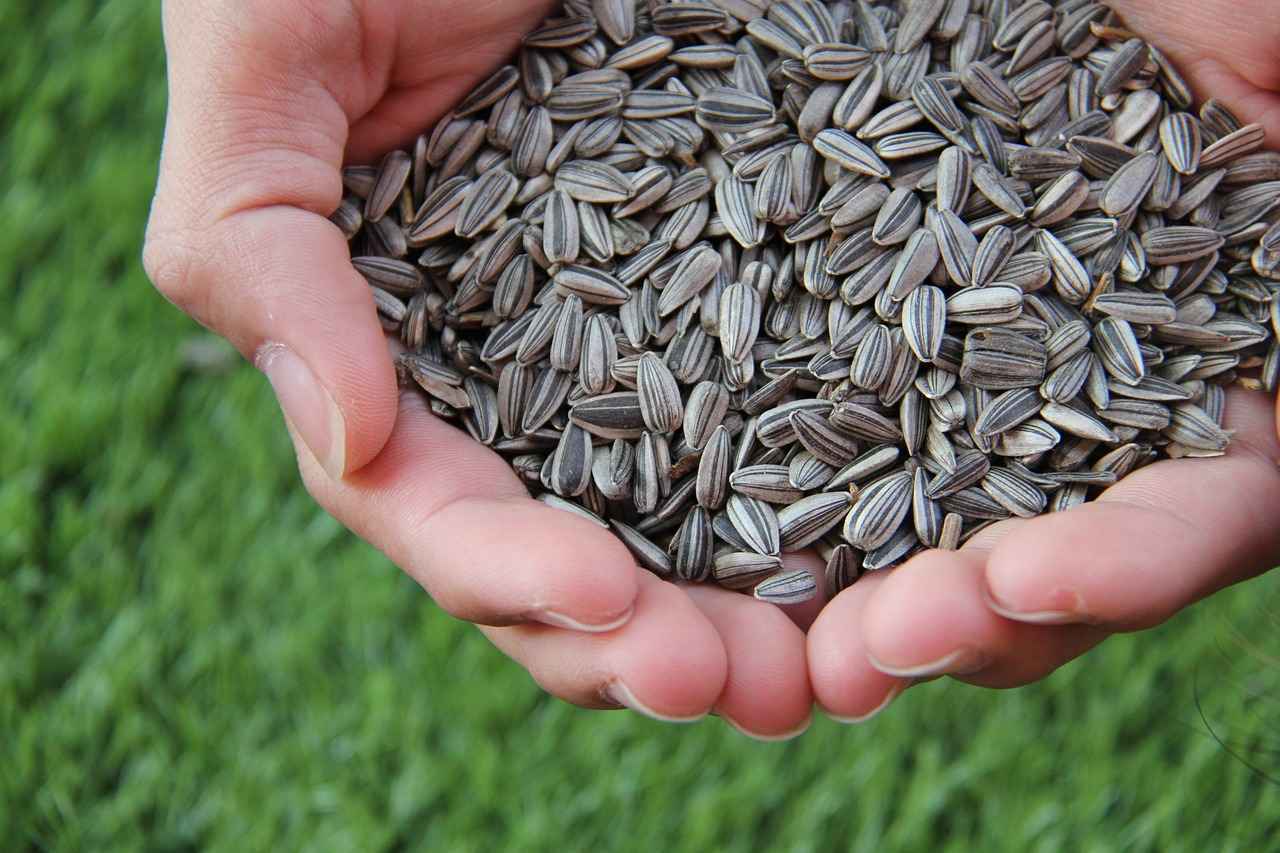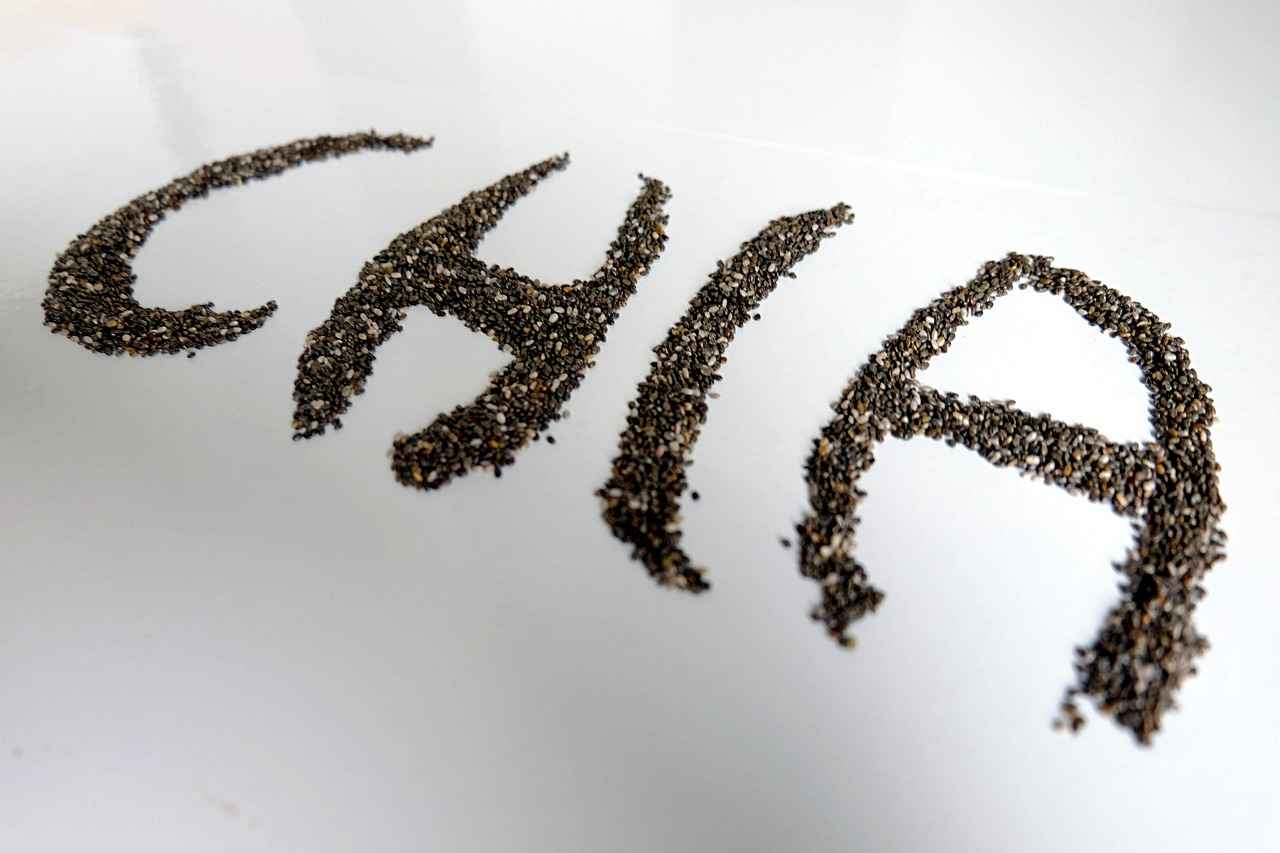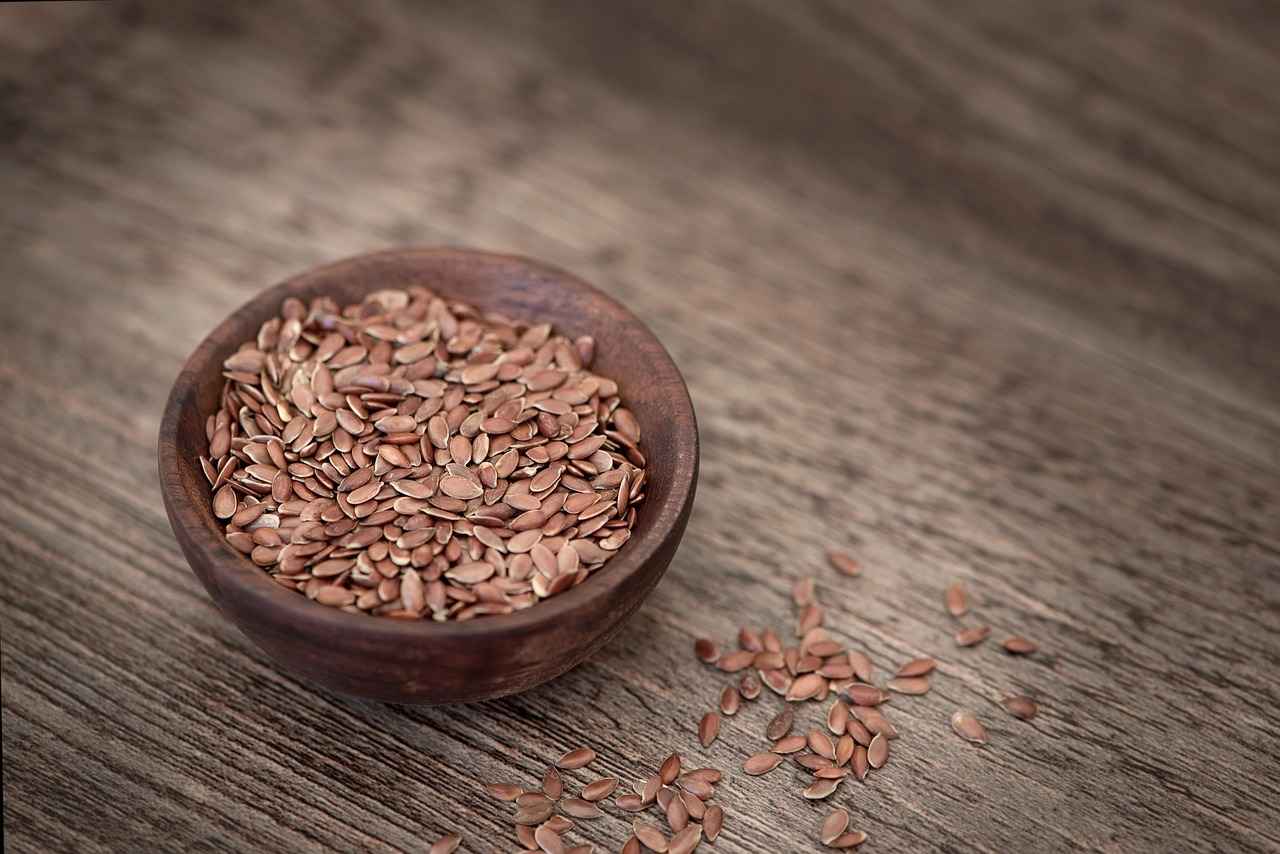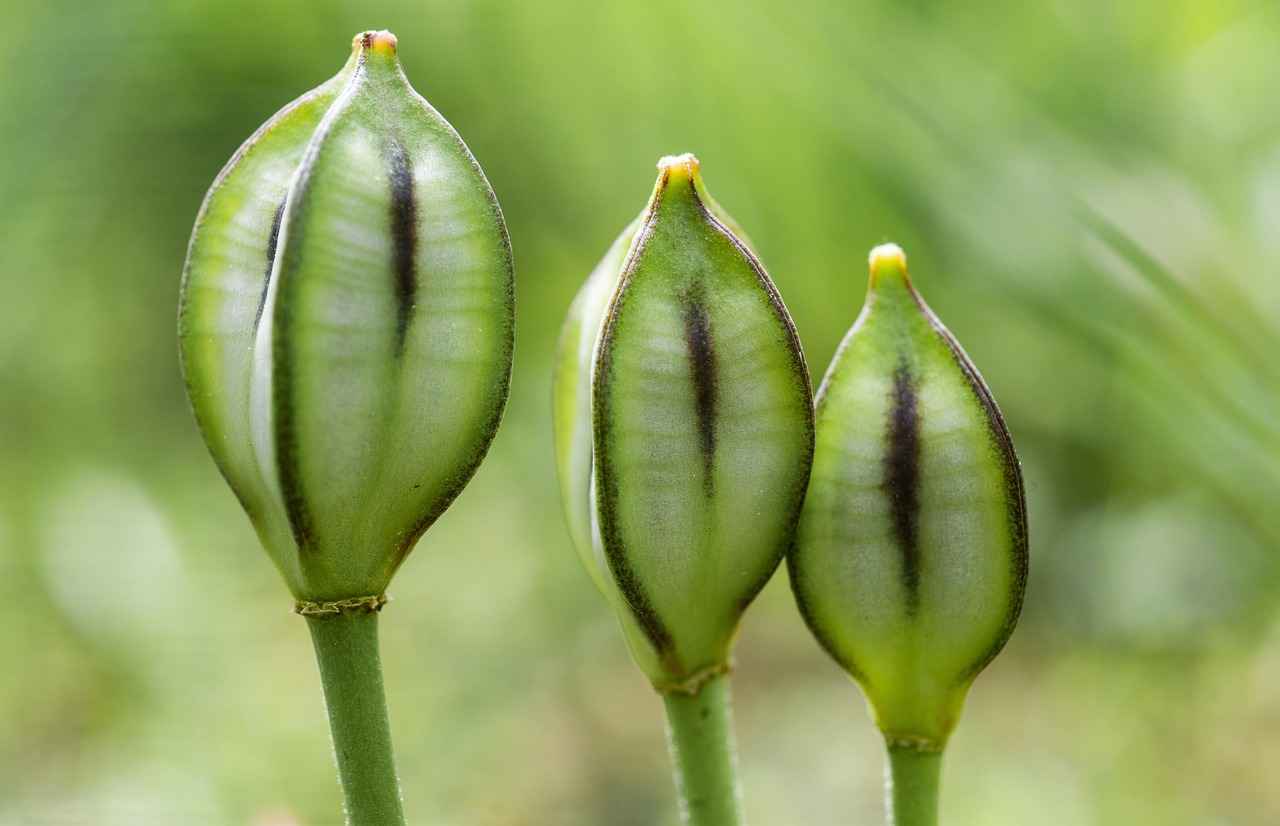Chia seeds have surged in popularity as a superfood, particularly among individuals looking for effective weight loss solutions. These tiny seeds, derived from the Salvia hispanica plant, are not only nutritious but also play a significant role in fat burning and enhancing overall health. This article delves into the various ways chia seeds contribute to weight loss and their additional health benefits.
Chia seeds are small, black seeds that are rich in essential nutrients. They are an excellent source of fiber, omega-3 fatty acids, and various vitamins and minerals. Understanding their nutritional composition is crucial for recognizing their weight loss properties.
Chia seeds assist in weight loss primarily due to their high fiber content, which promotes a feeling of fullness and helps reduce overall calorie intake.
The fiber in chia seeds can absorb up to 10-12 times its weight in water, expanding in the stomach and promoting a sense of satiety. This property can lead to a decrease in hunger and, consequently, lower calorie consumption.
By maintaining satiety for longer periods, chia seeds can effectively help manage appetite. This is essential for anyone trying to implement successful weight management strategies.
The gel-like consistency formed when chia seeds absorb liquid slows digestion, ensuring a gradual release of energy. This prevents spikes in blood sugar levels, which are often associated with increased hunger.
Beyond aiding weight loss, chia seeds are packed with nutrients. They contain high levels of protein, antioxidants, and essential fatty acids that support overall health while assisting in weight management.
Incorporating chia seeds into your daily meals is simple and delicious. Here are some practical tips:
One of the most popular ways to enjoy chia seeds is by making puddings. Combine chia seeds with milk or yogurt and let them sit until they form a thick, creamy texture. This makes for a nutritious snack or breakfast option.
Chia seeds can be blended into smoothies, enhancing texture and providing additional fiber without significantly altering the flavor. This is an easy way to boost your nutrient intake.
Chia seeds offer numerous health benefits beyond weight loss, making them a valuable addition to any diet.
The omega-3 fatty acids found in chia seeds are beneficial for heart health. They help reduce inflammation and lower cholesterol levels, contributing to overall cardiovascular wellness.
The high fiber content in chia seeds also promotes digestive health, aiding in regular bowel movements and preventing constipation, which is essential for maintaining a healthy weight.
While chia seeds are generally safe for most people, there are some potential side effects to consider.
Some individuals may experience allergic reactions to chia seeds, resulting in symptoms such as hives or gastrointestinal discomfort. It’s important to monitor your body’s response when trying them for the first time.
Overconsumption of chia seeds can lead to digestive issues due to their high fiber content. Moderation is key to enjoying their benefits without adverse effects.
Nutritionists and health experts often recommend chia seeds as part of a balanced diet. Their low-calorie, nutrient-dense nature makes them a valuable component of weight loss plans.
Many dietitians advocate for the inclusion of chia seeds in weight loss strategies, highlighting their ability to support sustainable eating habits.
Research has shown promising results regarding the weight loss benefits of chia seeds, providing a scientific basis for their inclusion in dietary recommendations.

What Are Chia Seeds?
Chia seeds, derived from the Salvia hispanica plant, are tiny black seeds that have been hailed as a superfood due to their impressive nutritional profile. These seeds are not only packed with essential nutrients but also offer significant health benefits, particularly for those aiming to lose weight. Understanding what chia seeds are and their composition can help you appreciate their role in a healthy diet.
Chia seeds are small, oval-shaped seeds that originate from a flowering plant in the mint family. They have gained immense popularity in recent years, especially among health enthusiasts and those on weight loss journeys. One of the standout features of chia seeds is their nutrient density. Just a small serving can provide a wealth of vitamins, minerals, and beneficial compounds.
- High in Fiber: Chia seeds are an excellent source of dietary fiber, with about 11 grams of fiber per ounce. This fiber content is crucial for digestive health and can aid in weight management.
- Rich in Omega-3 Fatty Acids: These seeds contain alpha-linolenic acid (ALA), a type of omega-3 fatty acid known for its anti-inflammatory properties and benefits for heart health.
- Protein Source: Chia seeds are also a good source of protein, providing about 4 grams per ounce. This makes them a valuable addition to vegetarian and vegan diets.
- Antioxidants: They are loaded with antioxidants, which help combat oxidative stress and inflammation in the body.
When consumed, chia seeds can absorb up to 12 times their weight in water, forming a gel-like consistency. This unique property not only makes them versatile for various recipes but also contributes to their weight loss benefits by promoting a feeling of fullness.
The combination of high fiber, protein, and healthy fats makes chia seeds a powerful ally in weight loss. The fiber in chia seeds expands in the stomach, which can help you feel full longer and reduce overall calorie intake. This effect can lead to better appetite control and a decreased likelihood of overeating.
Moreover, the slow digestion of chia seeds ensures a gradual release of energy, preventing spikes in blood sugar levels that can lead to cravings. By incorporating chia seeds into your meals, you can enjoy a nutrient-dense food that supports your weight loss goals.
Incorporating chia seeds into your daily diet is simple and delicious. Here are some practical ideas:
- Chia Pudding: Combine chia seeds with almond milk or yogurt and let them sit overnight. In the morning, you’ll have a creamy, nutritious pudding that you can top with fruits and nuts.
- In Smoothies: Add a tablespoon of chia seeds to your smoothies for an extra nutrient boost. They blend well without altering the flavor.
- Baking: Incorporate chia seeds into your baking recipes, such as muffins or bread, to enhance their nutritional value.
While chia seeds are generally safe for most people, some individuals may experience side effects. It’s important to consume them in moderation, as excessive intake can lead to digestive discomfort due to their high fiber content. Additionally, those with allergies to seeds should exercise caution.
In conclusion, chia seeds are a highly nutritious food that can be easily integrated into your diet. Their numerous health benefits, particularly for weight loss, make them a valuable addition to any meal plan. By understanding their composition and how to use them effectively, you can harness the power of chia seeds to support your health and wellness goals.

How Do Chia Seeds Aid Weight Loss?
Chia seeds have become a staple in many health-conscious diets, particularly for those aiming to shed extra pounds. Their unique properties make them an effective ally in weight loss journeys. This section will explore the various ways in which chia seeds facilitate weight management, focusing on their high fiber content, nutritional value, and their ability to promote satiety.
Chia seeds contribute to weight loss through several mechanisms that revolve around their composition and how they interact with our bodies. Here are some key aspects:
One of the most significant benefits of chia seeds is their high fiber content. Each serving of chia seeds contains about 11 grams of fiber, which is essential for promoting digestive health and maintaining a feeling of fullness. When chia seeds are consumed, they can absorb up to 10-12 times their weight in water, forming a gel-like substance in the stomach. This expansion in the stomach not only promotes a sensation of fullness but also slows down the overall digestion process.
The gel-like consistency of chia seeds plays a crucial role in appetite control. By prolonging the feeling of fullness, chia seeds can help reduce the urge to snack between meals, leading to a decrease in overall calorie intake. Studies have shown that individuals who consume chia seeds report feeling satisfied longer, which can significantly aid in effective weight management.
In addition to promoting satiety, chia seeds also contribute to slow digestion. The fiber in chia seeds slows the release of sugars into the bloodstream, which helps prevent spikes in blood sugar levels. This gradual release of energy can help maintain stable energy levels throughout the day and reduce cravings for unhealthy foods.
Chia seeds are not just a source of fiber; they are also packed with essential nutrients. They are rich in omega-3 fatty acids, proteins, and various vitamins and minerals. These nutrients support overall health while aiding in weight loss. For instance, omega-3 fatty acids are known for their anti-inflammatory properties, which can further enhance metabolic processes and support heart health.
Another benefit of chia seeds is their ability to promote hydration. When consumed, they absorb water and expand, which can help maintain hydration levels in the body. Proper hydration is crucial for optimal metabolic function, and a well-functioning metabolism is essential for effective weight management.
Incorporating chia seeds into your daily routine can be simple and enjoyable. Here are a few practical ways to add them to your diet:
- Chia Seed Puddings: Mix chia seeds with milk or yogurt and let them sit overnight to create a delicious and nutritious pudding.
- Smoothies: Add chia seeds to your smoothies for an extra nutrient boost without altering the flavor.
- Baking: Incorporate chia seeds into baked goods like muffins or bread for added texture and nutrition.
In summary, chia seeds are a versatile and nutrient-dense food that can significantly aid in weight loss. Their high fiber content, ability to promote satiety, and rich nutritional profile make them an excellent addition to any weight management plan. By understanding how chia seeds work, individuals can make informed dietary choices that support their health and wellness goals.
High Fiber Content
Chia seeds are becoming increasingly popular in health and wellness circles, particularly for those on a weight loss journey. One of the most significant factors contributing to their effectiveness is their . In this section, we will explore the various ways in which the fiber in chia seeds aids in weight management and overall health.
The fiber found in chia seeds is unique due to its ability to absorb water. When these seeds are consumed, they can absorb up to 12 times their weight in liquid, forming a gel-like substance in the stomach. This process leads to an increase in volume, which helps to promote a feeling of fullness. As a result, individuals may experience a reduction in hunger and cravings, ultimately leading to lower calorie consumption throughout the day.
Satiety, or the feeling of fullness, plays a crucial role in effective weight management strategies. By consuming foods that enhance satiety, such as chia seeds, individuals can better control their appetite. This is especially beneficial for those who struggle with frequent snacking or overeating. The gel-like consistency of chia seeds not only keeps hunger at bay but also prolongs the time between meals, allowing for a more manageable eating schedule.
In addition to promoting fullness, the gel formation that occurs when chia seeds absorb water also has implications for digestion. This gel slows down the digestive process, leading to a gradual release of energy. Such a mechanism helps to stabilize blood sugar levels, preventing spikes that can lead to sudden hunger pangs. By ensuring a steady supply of energy, chia seeds support sustained energy levels throughout the day.
Beyond their fiber content, chia seeds are rich in essential nutrients such as omega-3 fatty acids, protein, and antioxidants. These nutrients not only support overall health but also complement the weight loss benefits of fiber. For instance, omega-3 fatty acids are known for their anti-inflammatory properties, which can aid in recovery and overall wellness, making chia seeds a versatile addition to any diet.
- Chia Seed Puddings: Combine chia seeds with your choice of milk or yogurt to create a delicious and nutritious pudding.
- Smoothies: Blend chia seeds into your favorite smoothies for an added nutrient boost without altering the taste significantly.
- Baking: Incorporate chia seeds into baked goods such as muffins or bread for an extra fiber kick.
In conclusion, the high fiber content of chia seeds makes them a powerful ally in the quest for weight loss. By promoting satiety, regulating digestion, and providing essential nutrients, these tiny seeds can be an effective addition to a balanced diet. Whether you choose to enjoy them in puddings, smoothies, or baked goods, chia seeds can help you stay on track with your health goals.
Satiety and Appetite Control
When it comes to effective weight management, understanding how to control appetite is essential. One of the most powerful tools in this regard is chia seeds. These tiny seeds, derived from the Salvia hispanica plant, are not only nutritious but also play a significant role in maintaining a feeling of fullness for extended periods.
The secret behind chia seeds’ ability to control appetite lies in their unique composition. Chia seeds are packed with soluble fiber, which absorbs water and expands in the stomach. This expansion creates a gel-like substance that promotes a sensation of fullness, helping to curb hunger pangs. By incorporating chia seeds into your diet, you can effectively reduce your overall calorie intake, making them a valuable ally in weight loss endeavors.
Unlike many other seeds, chia seeds have a remarkable capacity to hold liquid, absorbing up to 10-12 times their weight in water. This characteristic not only contributes to their satiety effects but also aids in hydration. When consumed, chia seeds swell in the stomach, leading to a prolonged feeling of fullness that can help you resist the temptation of unhealthy snacks.
The gel-like consistency of chia seeds does more than just create a feeling of fullness; it also slows down the digestive process. This slow digestion ensures a gradual release of energy, preventing spikes in blood sugar levels that often lead to cravings and overeating. By stabilizing blood sugar, chia seeds help maintain energy levels throughout the day, allowing for better control over appetite.
Adding chia seeds to your meals is simple and versatile. Here are some effective ways to incorporate them:
- Chia Seed Puddings: Mix chia seeds with milk or a dairy alternative and let them sit overnight to create a delicious pudding.
- Smoothies: Blend chia seeds into your favorite smoothies for an added nutrient boost without changing the flavor.
- Salads: Sprinkle chia seeds on salads for a crunchy texture and additional fiber.
While chia seeds are generally safe for most individuals, it is essential to consume them in moderation. Overeating chia seeds can lead to digestive discomfort due to their high fiber content. Additionally, some people may experience allergic reactions. Therefore, it is advisable to start with small amounts and monitor your body’s response.
Nutritionists and health experts often recommend chia seeds as a part of a balanced diet. Their low-calorie, nutrient-dense nature makes them an excellent choice for those looking to manage their weight. Research has shown that incorporating chia seeds into your diet can lead to significant improvements in appetite control and overall health.
In conclusion, chia seeds offer a powerful solution for those seeking to manage their appetite and support weight loss efforts. By understanding their unique properties and incorporating them into your daily meals, you can harness their benefits effectively.
Slow Digestion
Chia seeds, known for their remarkable health benefits, have become increasingly popular among health enthusiasts and dieters alike. One significant aspect of chia seeds is their gel-like consistency, which plays a crucial role in managing digestion and energy release in the body.
Slow digestion is essential for several reasons, particularly when it comes to weight management and blood sugar control. By understanding how chia seeds contribute to this process, individuals can better appreciate their role in a balanced diet.
Chia seeds are rich in soluble fiber, which absorbs water and forms a gel-like substance in the stomach. This unique characteristic helps to slow down the digestive process, leading to a more gradual release of energy. As a result, the body experiences a steady stream of nutrients rather than quick spikes and drops in energy levels.
- Stable Blood Sugar Levels: By preventing rapid increases in blood sugar, chia seeds can help maintain energy levels throughout the day, reducing the risk of energy crashes.
- Enhanced Satiety: The gel-like texture of chia seeds expands in the stomach, promoting a feeling of fullness that can help curb overeating and unnecessary snacking.
- Improved Nutrient Absorption: Slow digestion allows for better absorption of essential nutrients, ensuring that the body gets the most out of the food consumed.
The ability of chia seeds to promote slow digestion makes them a valuable tool for those looking to manage their weight. When consumed, the seeds swell and create a substantial volume in the stomach, which can lead to reduced hunger pangs. This natural appetite control is vital for anyone aiming to cut back on calorie intake.
Adding chia seeds to your meals is simple and versatile. Here are a few ideas:
- Chia Seed Puddings: Mix chia seeds with your choice of milk or yogurt and let them sit overnight for a delicious breakfast.
- Smoothies: Blend chia seeds into your favorite smoothies for added texture and nutrition.
- Baking: Incorporate chia seeds into baked goods for a nutritious boost.
While chia seeds are generally safe for most people, it’s essential to consume them in moderation. Overeating chia seeds can lead to digestive discomfort due to their high fiber content. Additionally, individuals with specific allergies should exercise caution when trying chia seeds for the first time.
Nutritionists often highlight the benefits of chia seeds for their ability to aid in weight management and overall health. Many dietitians recommend incorporating chia seeds into daily diets due to their nutrient density and low-calorie content.
In summary, the gel-like consistency of chia seeds significantly contributes to their health benefits, particularly through slowing down digestion. This process not only aids in weight management but also promotes stable energy levels and better nutrient absorption. By understanding and utilizing the advantages of chia seeds, individuals can enhance their overall health and wellness.
Rich in Nutrients
Chia seeds are often hailed as a superfood, and for good reason. These tiny seeds are not only versatile but also rich in essential nutrients that can significantly contribute to a healthy diet. Their impressive nutrient profile makes them a popular choice for those looking to enhance their overall well-being and support weight loss efforts.
Chia seeds are a powerhouse of nutrients. They contain:
- Omega-3 Fatty Acids: These healthy fats are crucial for heart health and can help reduce inflammation in the body.
- Proteins: Chia seeds are a great source of plant-based protein, which is essential for muscle repair and growth.
- Antioxidants: They are loaded with antioxidants that help combat oxidative stress and protect the body from free radicals.
- Vitamins and Minerals: Chia seeds provide essential vitamins and minerals such as calcium, magnesium, and phosphorus which are vital for bone health.
- Fiber: The high fiber content aids digestion and promotes a feeling of fullness, which can help with weight management.
The combination of these nutrients in chia seeds plays a crucial role in supporting weight loss. For instance, the high fiber content helps to keep you feeling full for longer periods, reducing the likelihood of snacking between meals. Additionally, the omega-3 fatty acids can boost metabolism and promote fat burning, making chia seeds a valuable ally in any weight loss journey.
Incorporating chia seeds into your daily meals is simple and can add a nutritious boost to your diet. Here are some practical tips:
- Chia Seed Puddings: Mix chia seeds with your choice of milk or yogurt and let them sit overnight for a delicious and healthy pudding.
- Smoothies: Add a tablespoon of chia seeds to your smoothies for added fiber and nutrients without altering the taste.
- Baking: Incorporate chia seeds into baked goods like muffins or bread for an extra nutrient punch.
While chia seeds are generally safe for most people, it is important to consume them in moderation. Overeating can lead to digestive discomfort due to their high fiber content. Additionally, individuals with specific allergies should be cautious when trying chia seeds for the first time.
Nutritionists often recommend chia seeds as part of a balanced diet. Many studies have shown that they can be effective in supporting weight loss and improving overall health. Experts suggest that incorporating chia seeds into a varied diet can enhance nutrient intake and promote better health outcomes.
In conclusion, chia seeds are a nutrient-dense food that can provide numerous health benefits, particularly for those looking to manage their weight. With their rich composition of omega-3 fatty acids, proteins, antioxidants, and fiber, chia seeds can be a fantastic addition to your dietary regimen. Whether you choose to enjoy them in puddings, smoothies, or baked goods, these tiny seeds can help you achieve your health goals while satisfying your nutritional needs.

How to Incorporate Chia Seeds into Your Diet?
Incorporating chia seeds into your meals can be an enjoyable and effortless endeavor. These tiny seeds not only enhance the nutritional value of your diet but also add a delightful texture to various dishes. Here are some practical tips on how to seamlessly integrate chia seeds into your daily meals.
Chia seeds are a powerhouse of nutrients, including fiber, omega-3 fatty acids, and essential minerals. Adding them to your diet can not only support weight loss but also improve overall health. Here are some easy ways to incorporate them:
One of the simplest ways to enjoy chia seeds is by making chia seed pudding. To prepare this delightful dish, follow these easy steps:
- Combine 3 tablespoons of chia seeds with 1 cup of milk (dairy or plant-based).
- Add sweeteners like honey or maple syrup to taste.
- Mix thoroughly and let it sit in the fridge for at least 2 hours or overnight.
- Top with fruits, nuts, or granola before serving.
This pudding serves as a nutritious breakfast or snack, providing lasting energy throughout the day.
Chia seeds can easily be added to your morning smoothies for an extra nutritional boost. Here’s how:
- Add 1-2 tablespoons of chia seeds to your smoothie ingredients.
- Blend with your favorite fruits, vegetables, and a source of protein.
- Enjoy the creamy texture and enhanced fiber content without altering the flavor.
This method not only enriches your smoothie but also helps keep you full longer.
Another easy way to incorporate chia seeds is by sprinkling them on salads, soups, or cooked dishes. Here’s how:
- Use 1 tablespoon of chia seeds as a topping for salads.
- Mix into soups just before serving for added texture.
- Incorporate them into stir-fries or grain bowls for extra crunch.
This method not only enhances the visual appeal of your meals but also adds a nutritious element.
Chia seeds can be used in baking to increase the fiber content of your favorite recipes. Consider these tips:
- Replace eggs in recipes by mixing 1 tablespoon of chia seeds with 2.5 tablespoons of water and letting it sit until it forms a gel.
- Add chia seeds to bread, muffins, or pancakes for a nutritious upgrade.
This not only boosts the health benefits of your baked goods but also adds a unique texture.
For a refreshing drink, consider making a chia seed beverage:
- Mix 1-2 tablespoons of chia seeds with 1 cup of water or fruit juice.
- Let it sit for about 10-15 minutes until the seeds swell.
- Stir well and enjoy a hydrating drink that’s packed with nutrients.
This is an excellent way to stay hydrated while benefiting from the nutritional properties of chia seeds.
Incorporating chia seeds into your diet can be both easy and delicious. With these practical tips, you can enjoy the numerous health benefits they offer while enhancing the flavor and texture of your meals. Whether you choose to make puddings, smoothies, or sprinkle them on various dishes, chia seeds are a versatile ingredient that can enrich your diet.
Chia Seed Puddings
are an increasingly popular way to incorporate these tiny superfoods into your diet. Not only are they delicious, but they also provide a wealth of nutritional benefits, making them an ideal option for breakfast or a healthy snack.
To create a basic chia seed pudding, you only need a few ingredients. The primary components include:
- Chia seeds
- Liquid (such as almond milk, coconut milk, or yogurt)
- Sweetener (like honey, maple syrup, or agave)
- Flavorings (vanilla extract, cocoa powder, or fruits)
When combined, the chia seeds absorb the liquid and swell, forming a gel-like consistency that is both satisfying and nutritious. This gel formation is what makes chia pudding unique and beneficial, as it helps to keep you feeling full for longer periods.
One of the best aspects of chia seed puddings is their versatility. You can customize them to suit your taste preferences and dietary needs. Here are some popular variations:
- Berry Chia Pudding: Add a mix of fresh or frozen berries for a burst of flavor and antioxidants.
- Chocolate Chia Pudding: Incorporate cocoa powder and a sweetener for a decadent treat.
- Tropical Chia Pudding: Mix in coconut milk and top with sliced mango or pineapple for a refreshing twist.
To prepare chia pudding, simply combine the chia seeds with your chosen liquid and sweetener in a bowl or jar. Stir well to prevent clumping, then let the mixture sit for about 10-15 minutes. After this initial soak, stir again and refrigerate for at least an hour, or overnight for the best results. The longer the mixture sits, the thicker the pudding will become.
Chia seed puddings are not only a delightful way to enjoy chia seeds but also a practical option for those with busy lifestyles. They can be made in advance and stored in the refrigerator for several days, making them an easy grab-and-go breakfast or snack. The high fiber content of chia seeds contributes to a feeling of satisfaction, which can help curb cravings and support weight loss efforts.
Moreover, chia seed puddings can be a fantastic source of essential nutrients. Chia seeds are rich in omega-3 fatty acids, protein, and various vitamins and minerals, making them a great addition to any balanced diet. By incorporating these puddings into your meals, you not only enjoy a tasty treat but also support your overall health.
In summary, chia seed puddings offer a simple, nutritious, and customizable way to enjoy the benefits of chia seeds. With endless flavor combinations and easy preparation, they are an excellent choice for anyone looking to enhance their diet with a healthy snack or breakfast option.
Adding to Smoothies
Incorporating chia seeds into your diet can be a game-changer, especially when it comes to enhancing the nutritional value of your meals. One of the most popular and effective ways to enjoy these tiny powerhouses is by adding them to smoothies. This method not only boosts the nutrient content but also adds a delightful texture to your drink.
- Enhanced Nutritional Profile: Chia seeds are packed with essential nutrients such as omega-3 fatty acids, protein, and fiber. By blending them into your smoothies, you can significantly increase the nutritional value of your drink.
- Improved Texture: When soaked in liquid, chia seeds expand and create a gel-like consistency. This can enhance the texture of your smoothie, making it creamier and more satisfying.
- Weight Management: The high fiber content in chia seeds promotes a feeling of fullness, which can help control appetite and reduce overall calorie intake. This is especially beneficial for those looking to manage their weight.
Creating a delicious chia seed smoothie is simple and can be customized to suit your taste preferences. Here’s a basic recipe to get you started:
Ingredients:- 1 cup of your favorite fruit (banana, berries, or mango)- 1 cup of spinach or kale (optional for added nutrients)- 1 tablespoon of chia seeds- 1 cup of almond milk or yogurt- Honey or maple syrup to taste (optional)Instructions:1. In a blender, combine the fruit, greens, chia seeds, and almond milk.2. Blend until smooth and creamy.3. Taste and add sweetener if desired.4. Pour into a glass and enjoy!
To get the most out of your chia seed smoothies, consider the following tips:
- Soak the Seeds: For an even creamier texture, soak the chia seeds in water or your smoothie base for about 10-15 minutes before blending. This allows them to expand and release their gel-like properties.
- Experiment with Flavors: Don’t hesitate to mix different fruits, vegetables, and even spices like cinnamon or ginger to create unique flavor profiles that keep your smoothies exciting.
- Balance Your Ingredients: Ensure a good balance of carbohydrates, proteins, and healthy fats in your smoothie. This will provide sustained energy and keep you feeling satisfied longer.
While chia seeds are generally safe for most people, it’s important to consume them in moderation. Some potential drawbacks include:
- Digestive Issues: Due to their high fiber content, overconsumption can lead to digestive discomfort. Start with a small amount and gradually increase as your body adjusts.
- Allergic Reactions: Although rare, some individuals may experience allergic reactions to chia seeds. Monitor your body’s response, especially if you are trying them for the first time.
In conclusion, adding chia seeds to your smoothies is a simple yet effective way to enhance their nutritional value and support your health goals. With their numerous benefits, including improved texture, increased satiety, and a boost in essential nutrients, chia seeds can easily become a staple in your daily diet.

Potential Health Benefits Beyond Weight Loss
Chia seeds are not just a trendy addition to smoothies and health foods; they are packed with nutrients and offer a variety of health benefits that extend well beyond weight loss. Understanding these advantages can help you appreciate why incorporating chia seeds into your diet is a wise choice.
Chia seeds are rich in essential nutrients, including omega-3 fatty acids, fiber, proteins, and various vitamins and minerals. This unique composition makes them beneficial for overall health.
The omega-3 fatty acids found in chia seeds play a crucial role in promoting heart health. These healthy fats can help reduce inflammation, lower cholesterol levels, and improve overall cardiovascular function. Regular consumption of chia seeds may lead to better heart health and a lower risk of heart disease.
Yes! The high fiber content in chia seeds is instrumental in promoting digestive health. Fiber aids in regular bowel movements and helps prevent constipation. Additionally, it supports the growth of beneficial gut bacteria, which is essential for a healthy digestive system.
Chia seeds can help stabilize blood sugar levels due to their gel-forming ability when mixed with liquid. This gel slows down the digestion process, leading to a gradual release of glucose into the bloodstream. This can be particularly beneficial for individuals managing diabetes or those at risk of developing the condition.
Absolutely! Chia seeds are a great source of calcium, magnesium, and phosphorus, all of which are essential for maintaining strong bones. Incorporating chia seeds into your diet can contribute to improved bone density and overall skeletal health.
The antioxidants present in chia seeds help combat oxidative stress, which can lead to premature aging and skin damage. The omega-3 fatty acids also contribute to maintaining skin hydration and elasticity, making chia seeds a fantastic addition to your skincare routine.
Chia seeds are known for their ability to provide a sustained energy boost. Their combination of protein, fiber, and healthy fats makes them an excellent source of energy, helping you stay active and alert throughout the day.
- Add to Smoothies: Blend chia seeds into your favorite smoothies for added nutrition.
- Make Chia Pudding: Combine chia seeds with milk or yogurt and let them soak overnight for a delicious pudding.
- Sprinkle on Salads: Add a tablespoon of chia seeds to your salads for a crunchy texture and nutrient boost.
- Baking: Incorporate chia seeds into baked goods like muffins and bread for added health benefits.
In summary, chia seeds are a versatile superfood that offers numerous health benefits beyond weight loss. Their rich nutrient profile supports heart health, digestive health, blood sugar regulation, bone health, skin health, and energy levels. By incorporating chia seeds into your diet, you can enhance your overall well-being and enjoy a variety of delicious meals.
Heart Health
Chia seeds, often hailed as a superfood, are not only beneficial for weight loss but also play a crucial role in promoting . Among their many advantages, the omega-3 fatty acids found in chia seeds stand out for their ability to support cardiovascular wellness. This article delves into the various ways these tiny seeds contribute to a healthier heart.
Omega-3 fatty acids are essential fats that the body cannot produce on its own. They are vital for various bodily functions, including brain health and inflammation reduction. Chia seeds are an excellent source of these fatty acids, particularly alpha-linolenic acid (ALA), which has been linked to numerous health benefits.
- Reducing Inflammation: Chronic inflammation is a significant risk factor for heart disease. The omega-3 fatty acids in chia seeds help to combat inflammation, which can lead to improved heart function and reduced risk of cardiovascular issues.
- Lowering Cholesterol Levels: High levels of LDL (bad) cholesterol can lead to plaque buildup in arteries, increasing the risk of heart attacks and strokes. Chia seeds have been shown to help lower LDL cholesterol while increasing HDL (good) cholesterol, promoting a healthier lipid profile.
- Regulating Blood Pressure: Incorporating chia seeds into your diet may help regulate blood pressure levels. The seeds contain nutrients that support vascular health and improve blood flow, which can be beneficial for individuals with hypertension.
Another aspect of chia seeds that contributes to heart health is their high fiber content. Fiber plays a crucial role in maintaining a healthy heart by:
- Improving Digestion: A fiber-rich diet promotes regular bowel movements and prevents constipation, which is essential for overall health.
- Controlling Blood Sugar Levels: Fiber slows down the absorption of sugar in the bloodstream, helping to prevent spikes in blood sugar that can lead to diabetes and heart disease.
Adding chia seeds to your diet is simple and versatile. Here are some practical ways to include them:
- Chia Seed Smoothies: Blend chia seeds into your favorite smoothies for an added nutrient boost.
- Baking: Add chia seeds to muffins, bread, or pancakes for a healthy twist.
- Salads and Dressings: Sprinkle chia seeds on salads or mix them into dressings for extra crunch and nutrition.
Nutritionists and health experts often recommend chia seeds as part of a balanced diet. Their high nutrient density and low-calorie nature make them an ideal choice for those looking to improve their heart health. Research supports these claims, highlighting the positive impact of omega-3 fatty acids on cardiovascular health.
While chia seeds are generally safe for most people, it’s important to consume them in moderation. Overeating chia seeds can lead to digestive discomfort due to their high fiber content. Additionally, individuals with certain allergies should consult with a healthcare provider before adding chia seeds to their diet.
In conclusion, the inclusion of chia seeds in your diet can significantly benefit your heart health. With their rich omega-3 fatty acid content and high fiber levels, these tiny seeds offer a powerful punch against inflammation and cholesterol issues. By incorporating chia seeds into your meals, you can take a proactive step towards a healthier heart.
Digestive Health
Chia seeds are not only a popular superfood but also a powerhouse of nutrients that can significantly enhance . Their remarkable high fiber content plays a crucial role in promoting regular bowel movements, which is essential for overall well-being.
Maintaining good digestive health is vital for numerous reasons. It aids in the efficient absorption of nutrients, supports a healthy immune system, and helps prevent gastrointestinal disorders. A well-functioning digestive system also contributes to weight management by ensuring that the body processes food effectively.
The high fiber content in chia seeds is a key factor in their ability to promote digestive health. One of the most notable benefits of fiber is its ability to absorb water. When chia seeds are consumed, they can swell up to 10-12 times their original size, forming a gel-like substance. This process helps to:
- Promote Regular Bowel Movements: The gel created by chia seeds adds bulk to the stool, facilitating easier passage through the intestines.
- Prevent Constipation: By softening the stool and promoting regular bowel movements, chia seeds can help prevent constipation, a common digestive issue.
- Enhance Gut Health: The soluble fiber in chia seeds acts as a prebiotic, nourishing the beneficial bacteria in the gut, which is crucial for maintaining a balanced microbiome.
In addition to its role in digestive health, fiber offers several other advantages:
- Weight Management: High-fiber foods like chia seeds promote a feeling of fullness, which can reduce overall calorie intake.
- Blood Sugar Control: Fiber slows down the digestion of carbohydrates, leading to more stable blood sugar levels and reducing the risk of spikes and crashes.
- Heart Health: A fiber-rich diet is associated with lower cholesterol levels, reducing the risk of heart disease.
Incorporating chia seeds into your diet is simple and versatile. Here are some effective ways:
- Add to Smoothies: Blend chia seeds into your morning smoothie for an added fiber boost without altering the flavor.
- Make Chia Pudding: Combine chia seeds with almond milk or yogurt and let them sit overnight to create a delicious and nutritious pudding.
- Sprinkle on Salads: Use chia seeds as a topping on salads for added crunch and nutrition.
While chia seeds are generally safe for most people, it’s essential to consume them in moderation. Overconsumption can lead to digestive discomfort, including bloating or gas, due to their high fiber content. It’s advisable to start with small amounts and gradually increase your intake.
Nutritionists often recommend chia seeds as an excellent addition to a balanced diet. Their rich fiber content not only aids digestion but also supports overall health. Many experts emphasize the importance of fiber in maintaining a healthy gut and preventing digestive disorders.
In summary, chia seeds are a fantastic source of fiber that can significantly enhance . By promoting regular bowel movements and preventing constipation, they contribute to overall wellness and effective weight management. Incorporating chia seeds into your daily diet can be a simple yet effective way to improve your digestive health.

Are There Any Risks or Side Effects?
Chia seeds are often lauded for their numerous health benefits, but like any food, they can pose certain risks for some individuals. Understanding these potential side effects is crucial for anyone considering adding chia seeds to their diet.
While chia seeds are generally safe for most people, it’s important to be aware of potential side effects that can arise from their consumption. This section outlines the main concerns:
- Allergic Reactions: Some individuals may experience allergic reactions to chia seeds. Symptoms can include hives, itching, or gastrointestinal discomfort. If you have a history of allergies to other seeds or nuts, it is advisable to start with a small amount and monitor your body’s response.
- Digestive Issues: Due to their high fiber content, excessive consumption of chia seeds can lead to digestive problems such as bloating, gas, or diarrhea. It is recommended to gradually increase your intake and ensure adequate hydration, as chia seeds can absorb a significant amount of water.
- Choking Hazard: When consumed dry, chia seeds can swell and become gelatinous upon contact with liquid. This can pose a choking hazard, especially for individuals who have difficulty swallowing. Always soak chia seeds in water or another liquid before consumption to mitigate this risk.
- Interference with Medications: Chia seeds may interact with certain medications, particularly blood thinners or those affecting blood sugar levels. If you are on medication, consult your healthcare provider before incorporating chia seeds into your diet.
To enjoy the benefits of chia seeds while minimizing risks, consider the following tips:
- Start Slowly: If you are new to chia seeds, begin with a small amount, such as one teaspoon, and gradually increase to avoid digestive discomfort.
- Hydrate: Always soak chia seeds in water, juice, or milk before consumption to prevent choking and enhance digestion.
- Consult a Professional: If you have pre-existing health conditions or are pregnant, seek advice from a healthcare professional before adding chia seeds to your diet.
Chia seeds can be a nutritious addition to many diets, but they are not suitable for everyone. It is essential to listen to your body and recognize any adverse reactions. If you experience discomfort after consuming chia seeds, it may be best to discontinue use and consult a healthcare provider.
In summary, while chia seeds offer numerous health benefits, they also come with potential risks that should not be overlooked. By consuming them in moderation and being mindful of your body’s reactions, you can safely enjoy the advantages that chia seeds have to offer.
Allergic Reactions
Chia seeds have emerged as a popular superfood, known for their numerous health benefits and weight loss properties. However, like any food, they may not be suitable for everyone. One important aspect to consider is the potential for to chia seeds. Understanding these reactions can help individuals make informed dietary choices.
Allergic reactions to chia seeds can manifest in various ways. Common symptoms include:
- Hives: These are raised, itchy welts that can appear on the skin.
- Gastrointestinal Discomfort: This may include nausea, vomiting, or diarrhea.
- Respiratory Issues: Some individuals may experience difficulty breathing or wheezing.
- Swelling: This can occur in the face, lips, or throat, potentially leading to more severe complications.
While chia seeds are generally safe for most people, certain individuals may be at a higher risk for developing allergies. Those with a history of food allergies, particularly to other seeds or nuts, should exercise caution when trying chia seeds for the first time. It is advisable to consult with a healthcare professional if you have known allergies.
To minimize the risk of an allergic reaction, consider the following steps:
- Start Small: Begin with a small amount of chia seeds to monitor your body’s response.
- Observe Your Body: Pay attention to any adverse reactions after consumption. If you experience symptoms, discontinue use immediately.
- Consult a Doctor: If you have a history of allergies, it’s wise to seek medical advice before adding chia seeds to your diet.
If you suspect you have an allergy to chia seeds, it is crucial to take immediate action:
1. Stop consuming chia seeds immediately.2. If symptoms are mild, antihistamines may help alleviate discomfort.3. For severe reactions, such as difficulty breathing or swelling, seek emergency medical assistance.
While there is no guaranteed way to prevent allergies, you can take proactive measures:
- Read Labels: Ensure that products containing chia seeds are free from cross-contamination with allergens.
- Stay Informed: Keep up with the latest research on food allergies and chia seeds.
- Consider Alternatives: If you are allergic, explore other nutritious seeds like flaxseeds or hemp seeds that may offer similar health benefits.
In summary, while chia seeds can offer numerous health benefits, it is essential to be aware of the potential for allergic reactions. By understanding the symptoms, risks, and safe introduction methods, individuals can enjoy the advantages of chia seeds while minimizing their risk of adverse effects.
Excessive Consumption
Chia seeds are often hailed as a superfood, packed with nutrients and health benefits. However, like any food, moderation is crucial. One area of concern is the of chia seeds, which can lead to various digestive issues due to their high fiber content. Understanding the implications of overindulgence is essential for anyone looking to incorporate these tiny seeds into their diet.
Chia seeds contain a significant amount of dietary fiber, which is beneficial for digestive health when consumed in appropriate amounts. However, consuming them in excess can lead to digestive discomfort. Here are some potential effects of overconsumption:
- Bloating: The high fiber content can lead to gas and bloating, especially if your body is not accustomed to such a fiber intake.
- Constipation: Ironically, while fiber usually promotes regular bowel movements, too much fiber without adequate hydration can cause constipation.
- Diarrhea: Conversely, some individuals may experience diarrhea if they consume too many chia seeds, as the seeds can absorb water and expand in the digestive tract.
The recommended daily intake of chia seeds is typically around 1 to 2 tablespoons (15 to 30 grams). This amount is generally safe and effective for most people, providing the health benefits without the adverse effects. It’s important to start with a smaller amount and gradually increase your intake to allow your digestive system to adjust.
Moderation is critical when adding chia seeds to your diet. While they offer numerous benefits, including weight loss support and heart health, overconsumption can negate these advantages. Here are some tips for enjoying chia seeds responsibly:
- Hydrate: Always consume chia seeds with plenty of water or liquid to help them expand properly and aid digestion.
- Balance Your Diet: Ensure that your diet includes a variety of fiber sources to prevent overwhelming your digestive system with one type of fiber.
- Listen to Your Body: Pay attention to how your body reacts when you add chia seeds to your meals. If you notice discomfort, consider reducing your intake.
If you have pre-existing digestive issues or are unsure about how many chia seeds to include in your diet, it’s wise to consult with a healthcare professional or a registered dietitian. They can provide personalized advice based on your health status and dietary needs.
In summary, while chia seeds are a nutritious addition to your diet, it is essential to consume them in moderation to avoid potential digestive issues. By being mindful of your intake and listening to your body, you can enjoy the benefits of chia seeds without the adverse effects.

What Do Experts Say About Chia Seeds?
Chia seeds have become a staple in health-conscious diets, often praised for their numerous nutritional benefits. But what do experts really say about these tiny seeds and their role in weight loss and overall health? This section dives into the expert opinions, highlighting the scientific backing for incorporating chia seeds into daily nutrition.
Nutritionists and health experts frequently endorse chia seeds as a beneficial addition to a balanced diet. Their recommendations stem from extensive research and personal observations regarding the seeds’ efficacy in promoting weight loss and improving health.
Many experts emphasize the nutrient density of chia seeds. These seeds are rich in omega-3 fatty acids, protein, fiber, and essential minerals, making them a powerful food choice. Nutritionists highlight that their low-calorie count combined with high nutrient content supports sustainable weight management.
Experts point to several mechanisms through which chia seeds aid in weight loss:
- High Fiber Content: Chia seeds contain approximately 11 grams of fiber per ounce, which can help promote feelings of fullness and reduce overall calorie intake.
- Water Absorption: When chia seeds are mixed with liquid, they can absorb up to 12 times their weight in water, forming a gel-like substance that slows digestion and prolongs satiety.
- Blood Sugar Regulation: The slow release of carbohydrates from chia seeds helps stabilize blood sugar levels, preventing spikes that can lead to cravings and overeating.
Many dietitians advocate for the inclusion of chia seeds in weight loss plans. They often recommend starting with a small amount, such as one tablespoon per day, to allow the body to adjust to the increased fiber intake. Dietitians also suggest using chia seeds in various recipes to enhance flavor and texture without adding excessive calories.
Numerous scientific studies have examined the effects of chia seeds on weight loss. A study published in the Journal of Nutrition found that participants who incorporated chia seeds into their diet experienced significant reductions in body weight and waist circumference. This evidence supports the notion that chia seeds can be a valuable tool in weight management strategies.
Beyond weight loss, chia seeds offer a range of health benefits. Experts often note their role in:
- Heart Health: The omega-3 fatty acids in chia seeds have been linked to lower cholesterol levels and reduced inflammation, promoting cardiovascular health.
- Digestive Health: Their high fiber content aids in digestion, helping to maintain regular bowel movements and prevent constipation.
- Bone Health: Chia seeds are a good source of calcium, phosphorus, and magnesium, essential minerals for maintaining strong bones.
While chia seeds are generally safe for most individuals, some health experts caution against excessive consumption. Overeating chia seeds can lead to digestive discomfort due to their high fiber content. It’s crucial to introduce them gradually into your diet and drink plenty of water to aid digestion.
In conclusion, expert opinions overwhelmingly support the inclusion of chia seeds in a healthy diet. With their impressive nutrient profile and potential benefits for weight loss and overall health, chia seeds can be a valuable addition to anyone’s nutritional plan.
Dietitian Recommendations
Many dietitians recognize the value of incorporating chia seeds into weight loss plans. Their low-calorie and nutrient-dense nature makes them an ideal choice for those looking to shed pounds while maintaining a balanced diet. But what exactly makes chia seeds so beneficial according to nutrition experts?
Chia seeds are often praised for their impressive nutritional profile. Here are some reasons why dietitians advocate for their inclusion in weight loss strategies:
- High in Fiber: Chia seeds contain a significant amount of fiber, which aids in digestion and promotes a feeling of fullness. This can help individuals consume fewer calories throughout the day.
- Rich in Omega-3 Fatty Acids: These essential fatty acids help reduce inflammation and support heart health, making chia seeds a smart addition to any diet.
- Low in Calories: With only about 60 calories per tablespoon, chia seeds can enhance meals without adding excessive calories.
- Hydration: When soaked in liquid, chia seeds expand and form a gel-like consistency, which can help keep you hydrated and satiated.
Dietitians often suggest practical ways to include chia seeds in your meals:
- Chia Seed Pudding: Combine chia seeds with almond milk or yogurt and let them sit overnight to create a delicious pudding.
- Smoothies: Add a tablespoon of chia seeds to your morning smoothie for an extra nutrient boost.
- Baking: Incorporate chia seeds into baked goods like muffins or bread for added texture and nutrition.
Scientific research supports the claims made by dietitians regarding the benefits of chia seeds. Studies have shown that the high fiber content can lead to reduced appetite and lower calorie intake. Furthermore, the presence of antioxidants and other nutrients in chia seeds contributes to overall health, which is essential for sustainable weight loss.
While chia seeds are generally safe for most people, dietitians advise moderation. Overconsumption can lead to digestive discomfort due to their high fiber content. It’s also important to ensure adequate hydration when consuming chia seeds, as they absorb a significant amount of water.
Many nutrition experts emphasize the importance of variety in a diet. While chia seeds offer numerous benefits, they should be part of a diverse range of foods. Incorporating them alongside fruits, vegetables, whole grains, and lean proteins can create a well-rounded meal plan that supports weight loss and overall health.
In conclusion, chia seeds are a valuable addition to any weight loss plan, as recommended by dietitians. Their unique properties not only assist in weight management but also provide a plethora of nutritional benefits. By incorporating chia seeds into your daily meals, you can enjoy a satisfying and healthy approach to weight loss.
Scientific Studies
Chia seeds, derived from the Salvia hispanica plant, have garnered significant attention in the health and wellness community, particularly for their potential in aiding weight loss. Recent have revealed several mechanisms through which these tiny seeds may contribute to fat loss and overall health improvement.
Research has indicated that incorporating chia seeds into a balanced diet can lead to positive weight loss outcomes. One of the key findings is their ability to promote satiety. In a study published in the Journal of Nutrition, participants who consumed chia seeds reported feeling fuller compared to those who did not, leading to reduced calorie intake throughout the day.
The high fiber content of chia seeds is a primary factor in their effectiveness for weight management. When chia seeds are mixed with liquid, they absorb water and swell, forming a gel-like substance. This gel formation not only slows digestion but also enhances feelings of fullness. A study in the American Journal of Clinical Nutrition found that individuals who included chia seeds in their meals experienced significantly less hunger than those who consumed a similar meal without them.
Another aspect of chia seeds that supports weight loss is their impact on blood sugar regulation. Research suggests that chia seeds may help stabilize blood sugar levels, which is crucial for weight management. A study published in the Diabetes Care journal indicated that participants who consumed chia seeds experienced lower blood sugar spikes after meals, leading to better overall metabolic control.
Beyond weight loss, chia seeds are associated with numerous health benefits. Their rich nutrient profile, including omega-3 fatty acids, antioxidants, and essential minerals, supports overall health. A comprehensive review in the Nutrition Reviews highlighted that regular consumption of chia seeds can improve heart health by reducing inflammation and lowering cholesterol levels.
Many nutritionists advocate for the inclusion of chia seeds in daily diets, emphasizing their low-calorie, nutrient-dense nature. According to a report from the Academy of Nutrition and Dietetics, chia seeds can be a powerful tool for those looking to lose weight while ensuring they receive necessary nutrients. Experts suggest starting with a small amount, such as one tablespoon per day, and gradually increasing intake.
- Chia Seed Puddings: Mix chia seeds with your choice of milk or yogurt and let them sit overnight for a nutritious breakfast.
- Smoothies: Add chia seeds to your favorite smoothie for an extra boost of fiber and nutrients.
- Baking: Incorporate chia seeds into baked goods like muffins or bread for added texture and health benefits.
In conclusion, the evidence surrounding chia seeds and their role in weight loss is compelling. With their ability to promote satiety, stabilize blood sugar levels, and provide essential nutrients, chia seeds stand out as a valuable addition to a weight loss plan. As always, it is advisable to consult with a healthcare professional before making significant changes to your diet.

Conclusion: Are Chia Seeds Right for You?
As you explore the potential of chia seeds in your weight loss journey, it’s important to assess their compatibility with your individual health goals and dietary preferences. These tiny seeds, packed with nutrients, can be a powerful ally in your wellness journey, but understanding their role is crucial.
Chia seeds are derived from the Salvia hispanica plant and are celebrated for their impressive nutrient profile. They are rich in omega-3 fatty acids, fiber, proteins, and a variety of vitamins and minerals. This unique composition not only supports weight loss but also promotes overall health.
When considering chia seeds for weight loss, it’s essential to understand their mechanisms:
- High Fiber Content: Chia seeds contain a significant amount of fiber, which absorbs water and expands in your stomach, promoting a feeling of fullness. This can help curb your appetite and reduce overall calorie intake.
- Slow Digestion: The gel-like consistency of chia seeds slows down digestion, leading to a more gradual release of energy and preventing spikes in blood sugar levels, which can help manage cravings.
Yes, chia seeds are incredibly nutrient-dense. They provide essential nutrients that not only aid in weight management but also contribute to your overall health:
- Heart Health: The omega-3 fatty acids in chia seeds are known to reduce inflammation and promote cardiovascular health.
- Digestive Health: Their high fiber content supports regular bowel movements and prevents constipation, which is vital for maintaining a healthy weight.
Incorporating chia seeds into your daily meals is simple and versatile:
- Chia Seed Puddings: Combine chia seeds with milk or yogurt, allowing them to absorb liquid and create a delicious pudding.
- Add to Smoothies: Blend chia seeds into your favorite smoothies for an added nutrient boost without changing the flavor.
While chia seeds are generally safe for most people, some individuals may experience side effects:
- Allergic Reactions: Some may have allergies to chia seeds, which can lead to discomfort or hives.
- Excessive Consumption: Overeating chia seeds can cause digestive issues due to their high fiber content. Moderation is key.
Nutritionists often endorse chia seeds for their low-calorie and nutrient-dense nature. Many dietitians recommend including them in weight loss plans to support sustainable eating habits. Scientific research also backs their potential benefits, providing a solid foundation for their use in dietary recommendations.
Ultimately, whether chia seeds are suitable for you depends on your health objectives and dietary needs. If you seek to enhance your weight loss journey while enjoying a nutrient-rich addition to your meals, chia seeds may be an excellent choice. However, it’s always advisable to consult with a healthcare provider or nutritionist before making significant changes to your diet. By assessing your individual health goals and preferences, you can make an informed decision about incorporating chia seeds into your lifestyle.
Frequently Asked Questions
- What are chia seeds?
Chia seeds are tiny black seeds from the Salvia hispanica plant, known for their rich nutrient profile and high fiber content, making them popular among health enthusiasts.
- How do chia seeds help with weight loss?
Chia seeds aid weight loss primarily through their high fiber content, which absorbs water and expands in your stomach, promoting a feeling of fullness and reducing overall calorie intake.
- Can I eat chia seeds every day?
Yes, you can eat chia seeds daily! Just remember that moderation is key, as excessive consumption can lead to digestive issues due to their high fiber content.
- Are there any side effects of consuming chia seeds?
While chia seeds are generally safe, some individuals may experience allergic reactions or gastrointestinal discomfort, especially if consumed in large amounts. It’s best to start with small quantities.
- What is the best way to incorporate chia seeds into my diet?
You can easily add chia seeds to your diet by mixing them into smoothies, yogurt, or oatmeal, or by making delicious chia seed puddings for a nutritious snack!
- Do chia seeds provide any health benefits beyond weight loss?
Absolutely! Chia seeds are not only great for weight loss but also support heart health, digestive health, and are packed with essential nutrients like omega-3 fatty acids and antioxidants.












